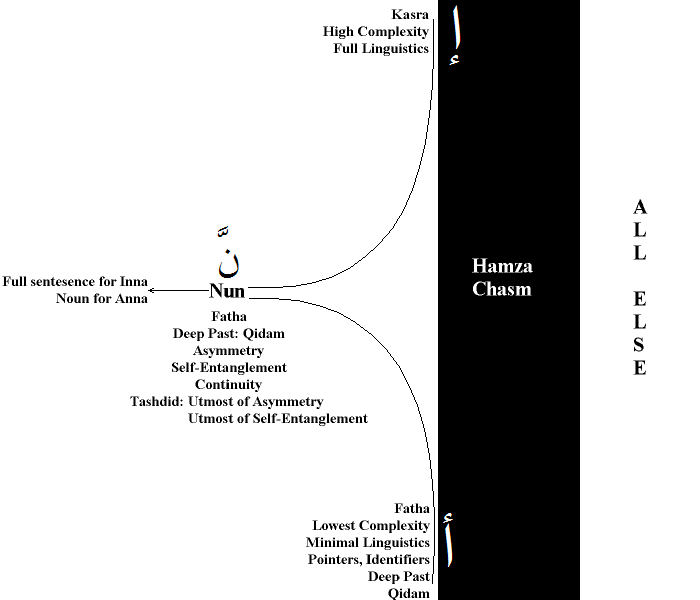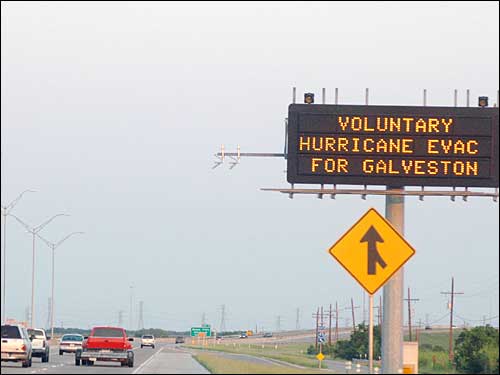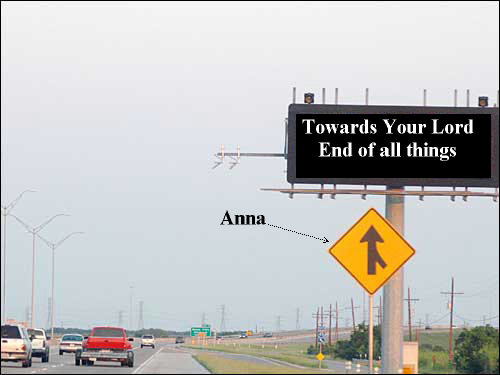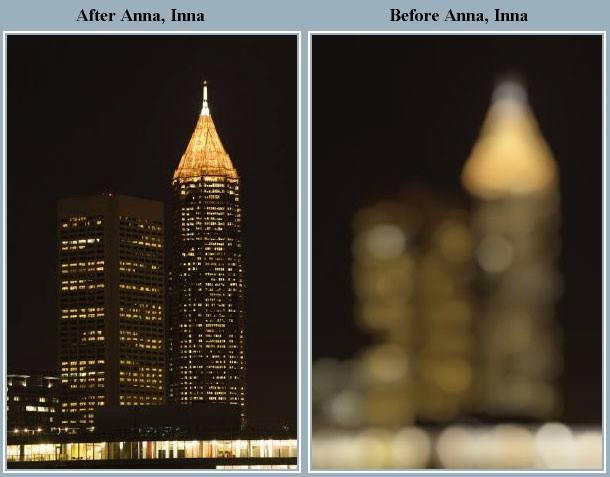Remark: Anna is the Directional Actualizer
specific to the Prophet Muhammad and the language of the Arab, if
believing that Ka
addresses the person of Muhammad.
Conquest: Serialization of the
Phonemes

Hamza: Sudden start or sudden
blockage of expiration of breath is Hamza in the language of Arab.
Hamza is thus renders a chasm, a gap of some kind, between this
universe
and the other universes, thus indicating total partition from the rest
of universe. Anna and Inna are standalone entities that enter and
operate within our spiritual and corporeal universes free of dependence
on any other being or process.
Fatha: Is the phoneme of ‘a’ as
in cat which uses the minimal oral movements, all past verbs of the
language of Arab end with this minimalistic phoneme (end inflection).
Fatha thus renders
the deep infinite past i.e. Qidam.
This Divine Letter
is originated
from too far in the past such that there is barely any linguistics
associated with it. Therefore Anna is followed by the noun or
verbal-noun phrases, incomplete in nature for this infinitely ancient
alphabet does not allow for full development of languages or logic.
Kasra: Mid-level motion for the
oral movement, a sound as ‘i’ in birth. Thus Inna, though still based
upon Fatha, is recent enough within the ontology of the cosmos such
that allows for full language and logic development e.g. propositional
logic. Thus more complete forms of knowledge and expression are
followed after Inna than allowed for Anna.
16:2. Hu
sends down ITs
angels with inspiration of ITs
Command, to such
of ITs
servants as Hu
wishes that they might warn (Man) Anna-hu "No deity other than I",
consequently
safeguard
against
Me
(My wrath)."
يُنَزِّلُ الْمَلَائِكَةَ
بِالرُّوحِ مِنْ أَمْرِهِ عَلَى مَنْ يَشَاءُ مِنْ عِبَادِهِ أَنْ
أَنْذِرُوا أَنَّهُ لَا إِلَهَ إِلَّا أَنَا فَاتَّقُونِ
“No deity other than I” is in Masdar (Verbal Noun) form and it is not a
sentence or an expression of a fact, it is a factual reality, it is a
Surat
(Constraint)
that
shapes and forms all things and all universes. Here
Anna points at the hu which is the third person pronoun ‘it’ i.e. A
vector pointing at the ‘it’ or a pointer point at ‘that’ and ‘that’ is
the Surat (Constraint)
“No
deity other than I”. Similarly:
21:25. Not an apostle did We
send before you without this inspiration
sent by Us
to him: Anna-hu "No deity other than I"; therefore worship and serve Me.
وَمَا أَرْسَلْنَا مِنْ
قَبْلِكَ مِنْ رَسُولٍ إِلَّا نُوحِي إِلَيْهِ أَنَّهُ لَا إِلَهَ إِلَّا
أَنَا فَاعْبُدُونِ
However:
20:14. "Inna-ni, I (am) Allah. No deity
other than I: So serve thou Me
(only), and establish regular prayer for celebrating My praise.
إِنَّنِي أَنَا اللَّهُ لَا
إِلَهَ إِلَّا أَنَا فَاعْبُدْنِي وَأَقِمِ الصَّلَاةَ لِذِكْرِي
On the other hand here there is a personal conversation between Allah
and Prophet Moses, Inna points to Me (ni) and “No deity other than I”
is of linguistic nature i.e. a form of syntactal expression used in
lingual form
and it differs from the seemingly exact verbiage of Anna above (in its
nature).
Latifa (Subtlety): Anna is comprised of the same letters as
Ana (I)! Except missing the end Alif of the Ana (I).
المفصل
في
صنعة
الإعراب الزمخشري
الباب
الثاني
أن
وإن
الفرق
بينهما
أن
وإن هما تؤكدان مضمون الجملة وتحققانه إلا أن المكسورة الجملة معها على
استقلالها بفائدتها، والمفتوحة تقلبها إلى حكم المفرد. تقول إن زيداً منطلق وتسكت
كما تسكت على زيد منطلق، وتقول بلغني أن زيداً منطلق،
وحق أن زيداً منطلق، فلا تجد بداً من هذا الضميم كما لا تجده مع
الإنطلاق ونحوه. وتعاملها معاملة المصدر حيث توقعها فاعلة ومفعولة ومضافاً
إليها في قولك بلغني أن زيداً منطلق، وسمعت أن عمراً خارج. وعجبت من أن
زيداً واقف. ولا تصدر بها الجملة كما تصدر بأختها بل إذا وقعت في موضع
المبتدأ التزم تقديم الخبر عليها فلا يقال أن زيداً قائم حق، ولكن حق أن
زيداً قائم.
التميز
بين
موقعيهما:
والذي
يميز
بين
موقعيهما أن ما كان مظنة للجملة وقعت فيه
المكسورة كقولك
مفتتحاً إن زيداً منطلق، وبعد قال لأن الجمل تحكى بعده،
وبعد
الموصول لأن الصلة لا تكون إلا جملة.
وما كان مظنة للمفرد وقعت فيه المفتوحة نحو مكان الفاعل، والمجرور، وما
بعد لولا، لأن المفرد ملتزم فيه في الإستعمال،
وما
بعد
لولان
تقدير
لو
أنك
منطلق
لانطلقت لو وقع أنك منطلق أي لو وقع
انطلاقك، وكذلك ظننت أنك ذاهب على حذف ثاني المفعولين. والأصل ظننت ذهابك
حاصلاً.
ومن
المواضع
ما
يحتمل المفرد والجملة فيجوز فيه إيقاع أيتهما شئت نحو قولك
أول ما أقول أني أحمد الله، إن جعلتها خبراً للمبتدأ فتحت، كأنك قلت أول
مقولي حمد الله وإن قدرت الخبر محذوفاً كسرت حاكياً ومنه قوله: وكنت أرى
زيداً كما قيل سيداً إذا إنه عبد القفا واللـهـازم
تكسر لتوفر على ما بعد إذا ما
يقتضيه من الجملة، وتفتح
على
تأويل
حذف
الخبر، أي
فإذا
العبودية حاصلة وحاصلة محذوفة
Nun: Nun as the nasalized
source rendering the infinitely ancient source of all asymmetries,
self-entanglements
and continuity.
Tashdid: Repeated-ness of the
Nun
indicating the multi-vectorial nature of either Anna or Inna. This
repeated-ness in the language of the Arab is called Ta’kid or placement
of absolute emphasis. When the noun is Allah or
pronouns referencing
the Divine Presence modalities, Tashdid indicates that what the Anna or
Inna point to (toward Divine Presence) are Mufrad or Mujarrad i.e.
uniquely
qualified only for Allah and non-else. The asymmetry of Nun’s
nasalization
provides a fundamental for the universe that allows for
such superior Divine
Asymmetries single-purposely dedicated for Divine
Presences: How Allah is no one else is, what Allah does no one else
can, Who Allah is other persons are not.
Semi-Verbs
Both Anna and Inna serve as semi-verbs i.e. acting upon their
noun as
if it is a subject/object of a sentence; they are both based upon the
state of Fatha
so they are past tense semi-verbs.
اللمع في العربية ابن جني
باب إن وأخواتها
عمل إن وأخواتها
وهي إن، وأن، وكأن، ولكن، وليت، ولعل، فهذه الحروف كلها تدخل على المبتدأ
والخبر، فتنصب المبتدأ ويصير اسمها وترفع الخبر ويصير خبرها، واسمها مشبه بالمفعول، وخبرها مشبه بالفاعل، تقول:
إن زيداً قائمٌ، وبلغني أن عمراً منطلقٌ، وكأن أباك الأسد، وما قام زيد
لكن جعفراً قائم، وليت أباك قادم، ولعل أخاك واقف.
معنى إن وأخواتها
ومعاني هذه الحروف مختلفة فمعنى إن وأن جميعا التحقيق، ومعنى كأن التشبيه،
ومعنى لكن الاستدراك، ومعنى ليت التمني ومعنى لعل التوقع والرجاء
إن وأن
وتكسر إن في كل موضع لو طرحتها منه لكان ما بعدها مرفوعا بالابتداء، تقول:
إٍنَّ أخاكَ قائمٌ، فتكسر إن لأنك لو طرحتها من هناك لقلت: أخوك قائم،
وتفتح أَنَّ في كل موضع لو طرحتها منه وما عملت فيه، لصلح في موضع الجميع
ذاك، ومعنى الكلام المصدر، تقول: بلغني أن زيدا قائم، فتفتح أن لأنك لو
طرحتها وما عملت فيه لقلت بلغني ذاك، ومعنى الكلام بلغني قيام زيد.
Q: How can we visualize these semi-verbs?
A: Like the signpost epitomized above i.e. the verb signifies ‘to
point’,
pointing at the noun, and it is always in the past tense since the act
of pointing is only observed after the fact.
These semi-verbs, Anna and Inna, point at the actualization and
realizations of entities under the Surat (Constraint)
e.g.
“No deity
other than I” or any other Surat
constraining the shaping of our
universe whether corporeal spiritual or intellectual or psychological
or biological or cosmical:
Al-Huruf
Farabi
Chapter 1
“Inna: Inna (Anna) means steadfast continuity perfection and solidity
both for the Wujud (Being-ness) and the knowledge of some object. “
الحروف الفارابي
الباب الأول
الحُروفُ وَ أسمَاء المقولات
الفصل الأوّل
حرف إنّ
(1) أمّا بعد فإنّ معنى انّ الثبات
والدوام والكمال والوثاقة في الوجود وفي العلم بالشيء.
ولذلك تسمّي الفلاسفة الوجود الكامل "
إنية " الشيء- وهو بعينه ماهيّته - ويقولون " وما إنية الشيء " يعنون ما
وجوده الأكمل، وهو ماهيته.
Botanical Outer-Limits: Utmost Reach
of Vector Anna
Anna points at the Al-Muntaha (Utmost End):
53:42.
And
Anna (points at) Al-Muntahā (The Utmost Limit, The End) (of
all things), towards
Lord
of
Ka
(yours
(Muhammad)) (a voyage is actualized,
is realized)
وَأَنَّ إِلَى رَبِّكَ
الْمُنْتَهَى
And the very end of that Utmost End there is a botanical structure:
53:14 Near the Lote-tree (at) Al-Muntahā
(The
Utmost Limit, The End) (of
all things)
عِنْدَ سِدْرَةِ الْمُنْتَهَى
Therefore those eyes who are able to look along all the Anna vectors
from the deep infinite past to the Al-Muntaha, they shall encounter a
botanical universe, this vast botanical structure of Al-Muntaha veiled
to occlude another realm:
16. Behold, the Lote-tree was covered
إِذْ يَغْشَى السِّدْرَةَ
مَا يَغْشَى



